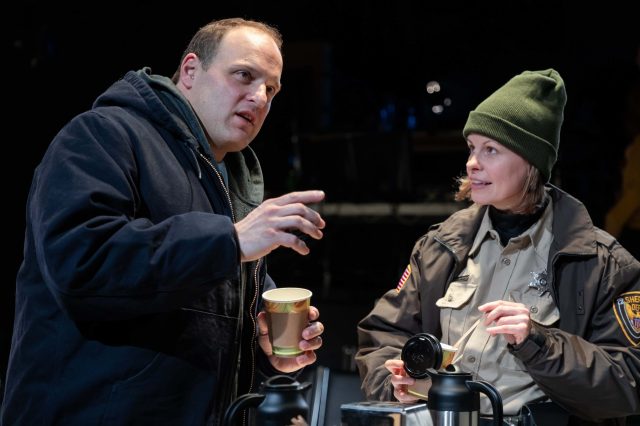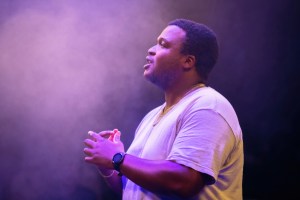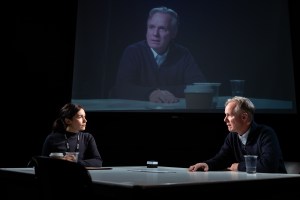17 Minutes at Edinburgh Festival Fringe – review
The Barrow Group brings a thought-provoking piece exploring American mass shootings to the Fringe

There’s something about American actors which enables them to create an intense sense of heightened reality in a way that their British counterparts often struggle to do. They invite you into an entirely believable world.
That’s one reason to see 17 Minutes from the Off-Broadway, New York-based Barrow Group. Even in a cramped room in Edinburgh with only a table and a few chairs as a set, it feels as if you have walked into a highly-charged TV drama.
But the other reason to see it is that the story it tells is so strong and so resonant. Scott Organ’s play never mentions the high school shooting in Parkland, Florida, in which 17 people died, but it is clearly the inspiration for this account of a fictional incident in which 12 students die when a fellow pupil opens up with an automatic rifle.
Specifically, the play focuses on the response of sheriff’s deputy Andy Rubens (Larry Mitchell) who stays outside the school for 17 minutes as the shooting takes place inside. Through the reactions to his response, or lack of it, the play probes how an entire community copes with a tragedy so immense.
It unfolds in a series of short scenes, beginning with Rubens’ interrogation by a detective, played by Brian Rojas, who is sensitive to his colleague’s plight but cannot quite hide his astonishment at his actions (“Maybe you were scared?”), and moving through conversations with his supportive but frightened wife (DeAnna Lenhart) and an encounter with the boy’s father (Michael Giese) – “You’ve found the guy everyone hates more than you.”
The writing is spare and nuanced, as it circles notions of responsibility and guilt. “We’ll always be defined by what we didn’t do,” offers the boy’s dad, marvelling at the way his son said sorry “like he broke a coffee cup.”
Seth Barrish directs with a gravity and tension that keeps the focus constantly on the seriousness of the theme, and the impossibility of predicting in advance how somebody will react to an act of overwhelming violence.
Rubens’ emotions remain frustratingly opaque but in a final encounter between him and the mother of one of the victims (played with suppressed emotional power by Lee Brock), the play lays bare the meaningless waste of such acts of slaughter, and their devastating effects on the lives of all those who are touched by them. It is powerful, thought-provoking stuff.
















